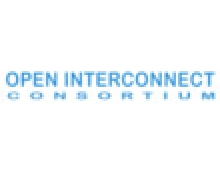
Open Connectivity Foundation Established To Promote Interoperability Of IoT Devices
Microsoft, ARRIS, CableLabs, Cisco, Electrolux, General Electric, Intel, Qualcomm, Samsung and others, created the Open Connectivity Foundation (OCF), which is committed to furthering industry standards for the Internet of Things. For the past few years, chip making rivals Intel and Qualcomm companies have led separate and competing standards groups around the connected light bulbs, thermostats, cars and more - the Open Interconnect Consortium (OIC) on Intel’s side and AllSeen Alliance on Qualcomm’s. Now the two will begin collaborating with each other under OIC’s new name: the Open Connectivity Foundation (OCF). The OCF unifies companies at all levels – silicon, software, platform, and finished-goods.
The OCF will create a set of open specifications and protocols to enable devices from a variety of manufactures to interact with one another. Regardless of the manufacturer, operating system, chipset or transport – devices that adhere to the OCF specifications will work together.
Despite the opportunity and promise of IoT to connect devices in the home or in businesses, competition between various open standards and closed company protocols have slowed adoption. Much like W3C manages the standards for the World Wide Web, the IEEE sets electrical engineering standards and the UPU sets the global postal code - standardization can help consolidate industry attention and create opportunity, via an agreed upon set of protocols.
The new entity will replace all of OIC’s activities. Existing OIC members will move over to this new organization. Qualcomm will stay involved in AllSeen and any device running the AllSeen standard will also work on the new OFC standard.
Microsoft said that Windows 10 devices will natively interoperate with the new OCF standard, making it easy for Windows to discover, communicate, and orchestrate multiple IoT devices in the home, in business, and beyond. The OCF standards will also be fully compatible with the 200 million Windows 10 devices that are "designed for AllSeen" today.















